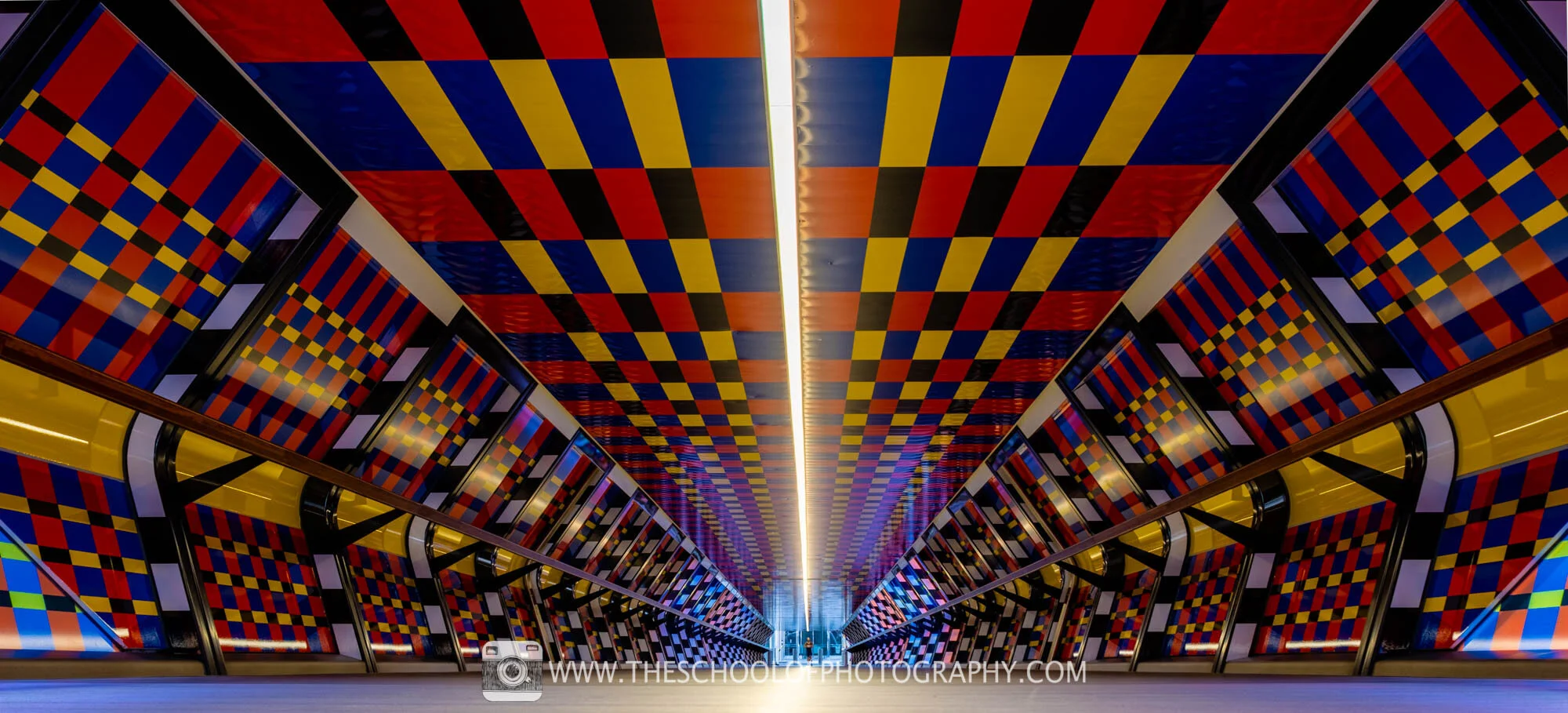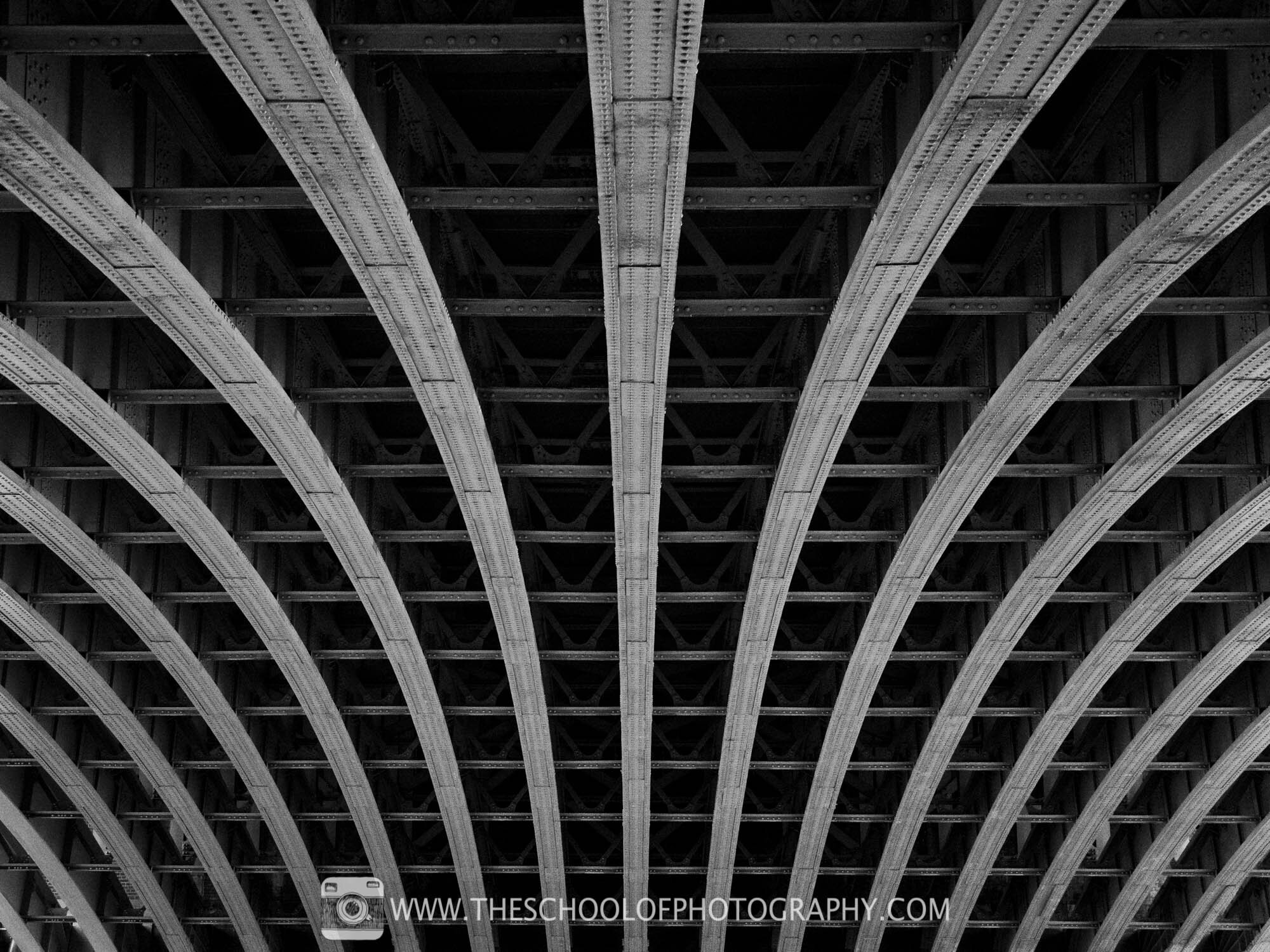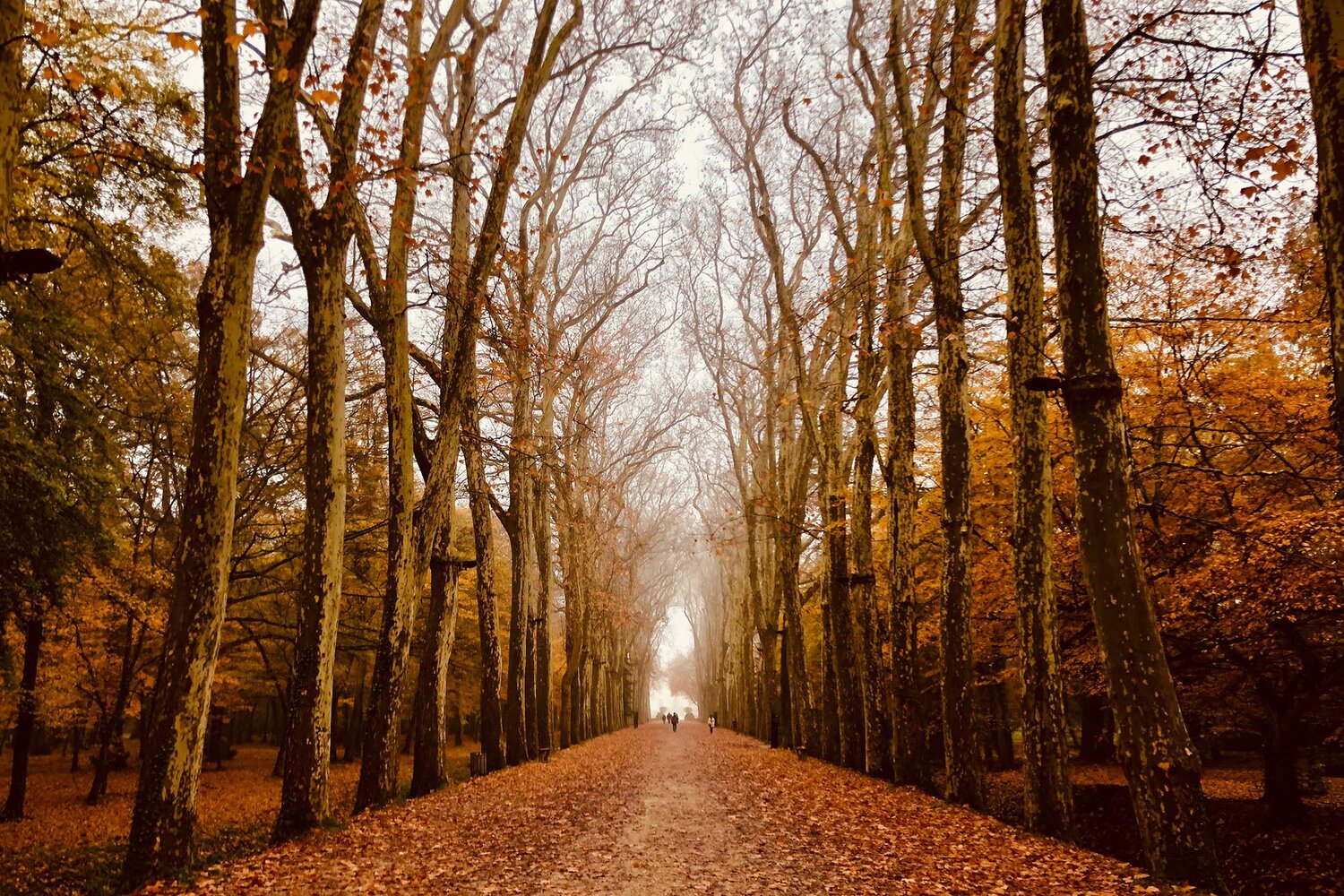You may have often heard of the term symmetry in day to day life. When an image looks identical to the original image after the shape is being turned or flipped then it is called symmetry.

What Is Symmetry In Photography How To Really Use It
In other words if you cut the photo in half the left and right side mirror each other.

. Symmetry is a great technique in photography it will clean up your compositions and can m. Balanced proportions also. However this symmetry doesnt have to be literal in the sense of one half of an image exactly mirroring the other.
The property of being symmetrical especially. If we are very strict symmetry means that the two sides should be 100 identical. You can also achieve amazing results by exploring interesting ways to show symmetry in your subjects or finding a break in the symmetry.
Symmetry refers to any reflections across the image. Symmetrical photographs may also leave empty space in the center and place two symmetrical subjects of interest on either side of the photograph. Symmetrical balance can be thought of as.
Four Types of Symmetry in Photography 1. Painters sculptors and others have used dynamic symmetry grids to guide the structure of their compositions. Dynamic symmetry in art has been used since ancient times.
Relying on how youre holding the digital camera and the way a lot of a scene you select to point out you may strengthen or weaken the symmetric properties of an object or scene. The creation of an image in which both sides either horizontal or vertical should look the same. Symmetry is a strong device that allows you to mechanically create concord and a way of aesthetically pleasing balance and proportion in a photograph.
Dynamic symmetry composition arranges elements in the frame using a dynamic symmetry grid. Vertical Vertical Symmetry is the opposite where the line divides the left and right into two equal halves. Patterns both natural and man-made bring a sense of visual rhythm and harmony to photographs that like a series of repeating notes in a melody capture the imagination.
Symmetry Photography Composition. Asymmetry is the opposite of symmetry which often places the subject of interest in the center. Patterns appear whenever strong graphic elementslines colors shapes or formsrepeat.
For example the left and right half of a composition could mirror each other while the top and bottom also mirror each other. It exists in patterns. I hope this post was useful and inspiring to go and explore the possibilities of using symmetry in photography.
Keeping your subject symmetrical is another good technique to use in photography. A photograph is symmetrical if it has two almost identical sides with a central point of axis. Or the upper and bottom half are imitating each other.
Capturing elements in which there are repeating shapes lines or colors. What is symmetry in photography. It can also involve illusory reflections such as when you photograph an animal that has identical left and right sides.
Nicholas Goodden is a professional urban photographer and. Symmetry in photography is often associated with non-living objects like buildings. Self-portraiture is a fantastic way to get better at finding good compositions without always being behind the camera.
This is a series of lines that dissect the rectangular shape of your frame. This type of symmetry is most common in landscape photography especially when bodies of water are present. This can involve real reflections such as a subject looking in a mirror or a subject reflected on water.
This post is part of our Rules of Composition in Photography series. Correspondence in size shape and relative position of parts on opposite sides of a dividing line or median plane or about a center or axis compare bilateral symmetry radial symmetry. A rigid motion of a.
The key to emphasizing patterns is to isolate them from their surroundings. But it can also include people. Regularity of form or arrangement in terms of like reciprocal or corresponding parts.
Symmetry Math definition states that symmetry is a mirror image. Beauty of form arising from balanced proportions. This is also known as formal balance or symmetrical balance.
To make the process easier make sure you use a sturdy tripod and a remote. Reflectional Symmetry One of the most common composition techniques to create symmetrical images is reflectional symmetry which refers to photos where one side of the composition is the mirror image of the other side. Symmetrical balance refers to balance that is achieved by arranging elements on either side of the center of a composition in an equally weighted manner.
In asymmetrical photography these rules are inverted or even occasionally subverted. Symmetry Photography - Definition - Online Encyclopedia Symmetry The symmetry can even occur over multiple axes at the same time. Symmetrical photos are perceived as harmonious balanced and steady.
Having strong composition and points of interest will help symmetry. Symmetry definition the correspondence in size form and arrangement of parts on opposite sides of a plane line or point. Snowflakes show reflection symmetry over more than two axes.
Symmetry in photography composition is achieved when two halves of an image hold the same weight. In this tutorial we are going to look at symmetry in photography.

Symmetry In Photography Killer Tips To Improve Composition The School Of Photography Courses Tutorials Books
Composition 101 Symmetry Photolisticlife

How To Use Symmetry In Photography

Symmetry In Photography Killer Tips To Improve Composition The School Of Photography Courses Tutorials Books

Symmetry In Photography Killer Tips To Improve Composition The School Of Photography Courses Tutorials Books

7 Great Tips To Use Symmetry In Photography

Symmetry In Photography Killer Tips To Improve Composition The School Of Photography Courses Tutorials Books

0 comments
Post a Comment